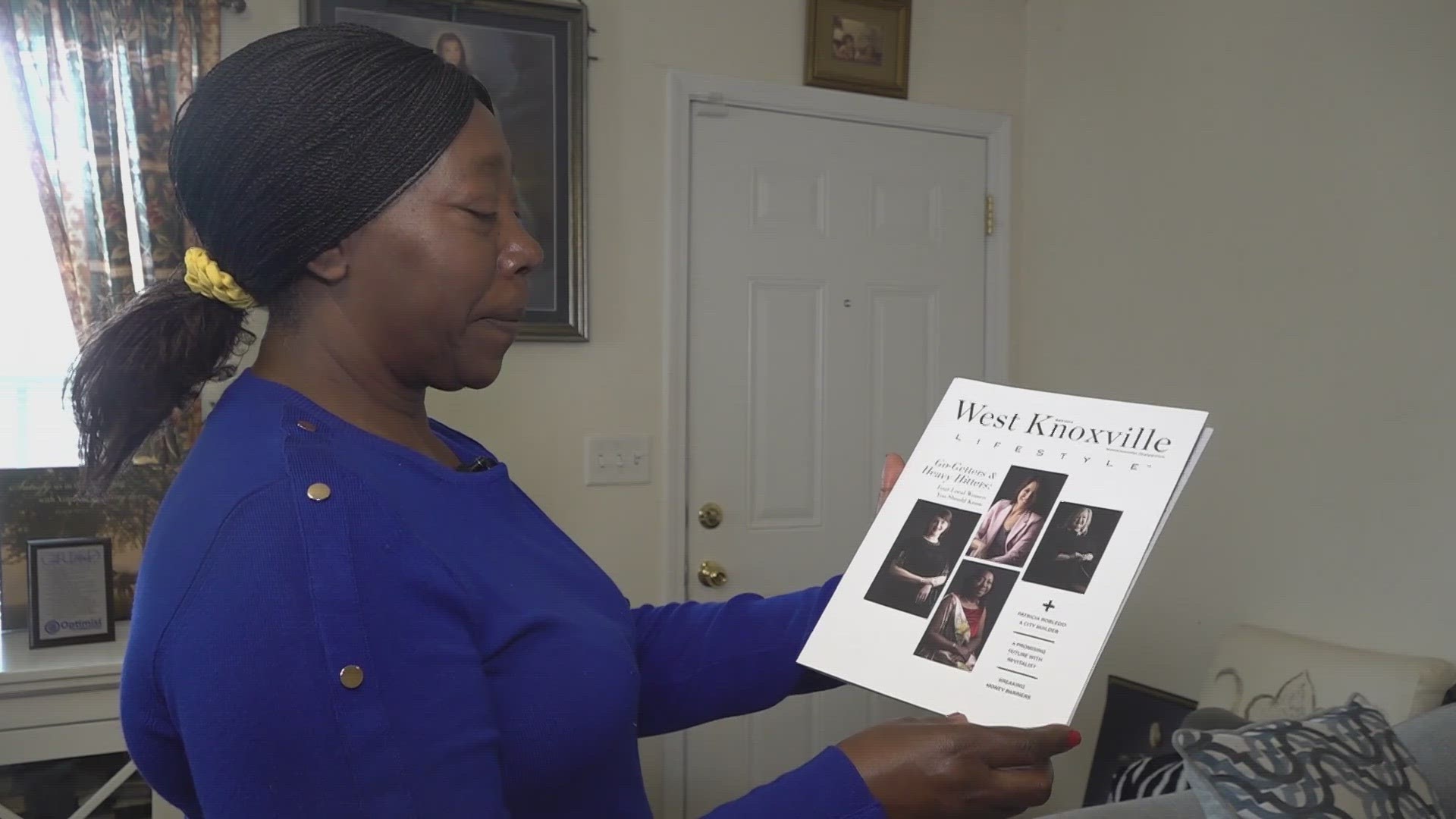KNOXVILLE, Tenn. — A new initiative is transforming the way the United States welcomes and supports refugees, according to the U.S. Department of State.
The Welcome Corps was created in January of this year. For the first time, everyday Americans can come together to privately sponsor a refugee and get them settled into their new home, directly helping them navigate life in a new country.
An East Tennessee woman is one of 10,000 Americans chosen to lead the effort within their communities.
A refugee herself, Drocella Mugorewera knows it can be easy to fear the unknown.
"Imagine yourself, going into a new country; brand new, no language, no friends, nobody," she said. Fourteen years ago, Mugorewera didn't have to imagine: "I am originally from Rwanda. When I fled without direction, I was separated from my children for two years. I didn't talk to them for a year."
Fleeing political persecution in Rwanda, Mugorewera arrived in Knoxville in 2009. She was reunited with her family soon after. Today, she can attest that the right people will help one another through the toughest journeys.
"The community of Knoxville, they helped us to heal," Mugorewera added. The Welcome Corps provides East Tennesseans an opportunity to help others heal, she said.
The program allows everyday Americans to come together in groups of five to sponsor a refugee.
The Biden administration introduced the program in January and has praised it as "the boldest innovation in the United States’ approach to refugee resettlement in four decades."
According to the U.S. Department of State, "Americans can apply to form Private Sponsor Groups (PSGs) to welcome refugees into local communities and directly assist refugee newcomers as they build new lives in the United States."
Mugorewera is leading the effort in East Tennessee as an adviser. "Because I understand the struggle refugees go through, and I cannot wait to mobilize resources and people to help them to navigate quicker than I did," she said.
Sponsors welcome refugees at the airport and help them find housing and jobs, but most importantly, Mugorewera said it's a chance to help them navigate the unknown — the same way she was helped 14 years ago.

